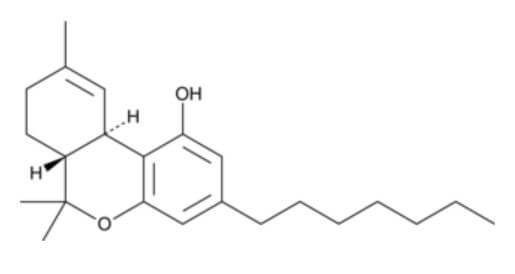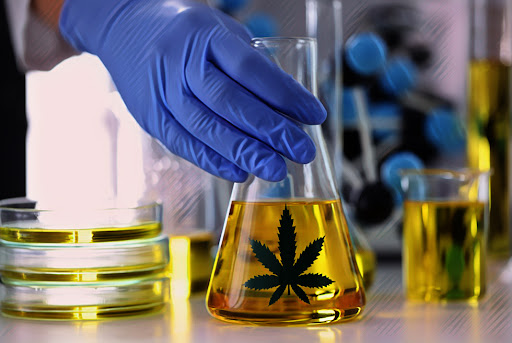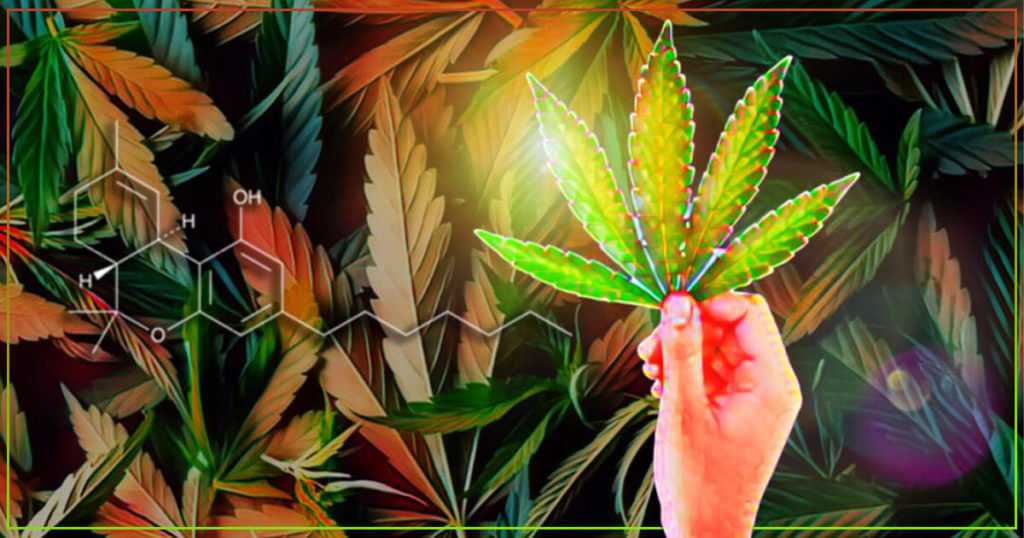You may be asking, “What is THCP?” If so, you’re not alone.
Simply put, it’s close to a dead ringer for Delta-9 THC, except for a seven-chain alkyl — the longest of all the THC variants in the plant. That might not sound like a lot, but that seven-chain alkyl really does make all the difference when it comes to binding affinity. We’re talking at least 34 times greater than for Delta-9 THC alone, although whether or not that translates into potency is uncertain.

Yes, we know there are distributors that sell what they claim to be THCP (or tetrahydrocannabiphorol to its pals) extracts online. However, it’s going to take time before testing labs develop the proper assays that consistently detect its presence. Plus, similar to Delta-8, it’s a grey area, since it would otherwise fall under the Federal Analogue Act were it not for people synthesizing it, (presumably) from hemp cannabinoids.
History of THCP
As you may know, there’s no shortage of synthetic cannabinoids out there.
They’ve been around for decades, and a specific synthetic with the rather catchy name of JWH-019 (which apparently is Schedule I, FYI) also has the seven-alkyl chain. However, in 2019, a team of Italian researchers, exploring a cannabis strain called FM2, discovered the presence of a naturally-occurring phytocannabinoid within the plant, which they named THCP.
That means there is a NATURAL, NON-SYNTHETIC seven-alkyl THC derivative that presumably does all the things the synthetic does. That makes it FAR more desirable for whole-plant freaks like us.
*Fun Fact* There is also a CBD version, called CBDP, and even less is known about it, except for the fact that it exists.
Effects of THCP
While THCP has not been officially tested in humans, the same paper which declared its existence also featured a test on mice which featured the tetrad assay, which measures for psychoactive effects along four axes: spontaneous activity, pain sensitivity (or nociception), temperature changes and immobility. Sure enough, it triggered statistically significant effects on all of them, which does suggest that those who use it will feel something. Whether it gets people subjectively higher or not will have to wait for another paper.

The paper’s authors do believe that THCP is perhaps more prevalent in strains than we probably know and that it may account for the relative strengths of certain strains over others. So if you’re consuming cannabis for its effects, it’s possible you have already tried it — you just didn’t know it at the time.
This is what we mean when we talk about the “full spectrum” of cannabinoids and terpenes. Not just the ones that show up on advanced third-party lab testing, but everything we have yet to discover as well. Just as everyone from cultivators, to researchers, to consumers shifted their focus to terpenes last year on a quest to achieve the Entourage Effect, a similar rush is now underway to learn more about these subcannabinoids.
Potential Effects & Drawbacks of THCP
We can only assume that THCP is good for many of the same things THC is — pain relief, nausea, etc. — and it may also possess the same safety profile as well, though that has not been specifically studied. However, it may have utterly unique applications. It will be up to the people and the researchers who follow this relatively uncharted path to determine it.

Medicine Box is your one-stop-shop for the highest quality cannabis goods, heritage, and wisdom. Together, we share a common goal of cannabis culture preservation and ongoing education.
Read more Medicine Box / Beard Bros collaborations HERE
You can learn more about Medicine Box – and sign up for a free course on terpenes – HERE
















